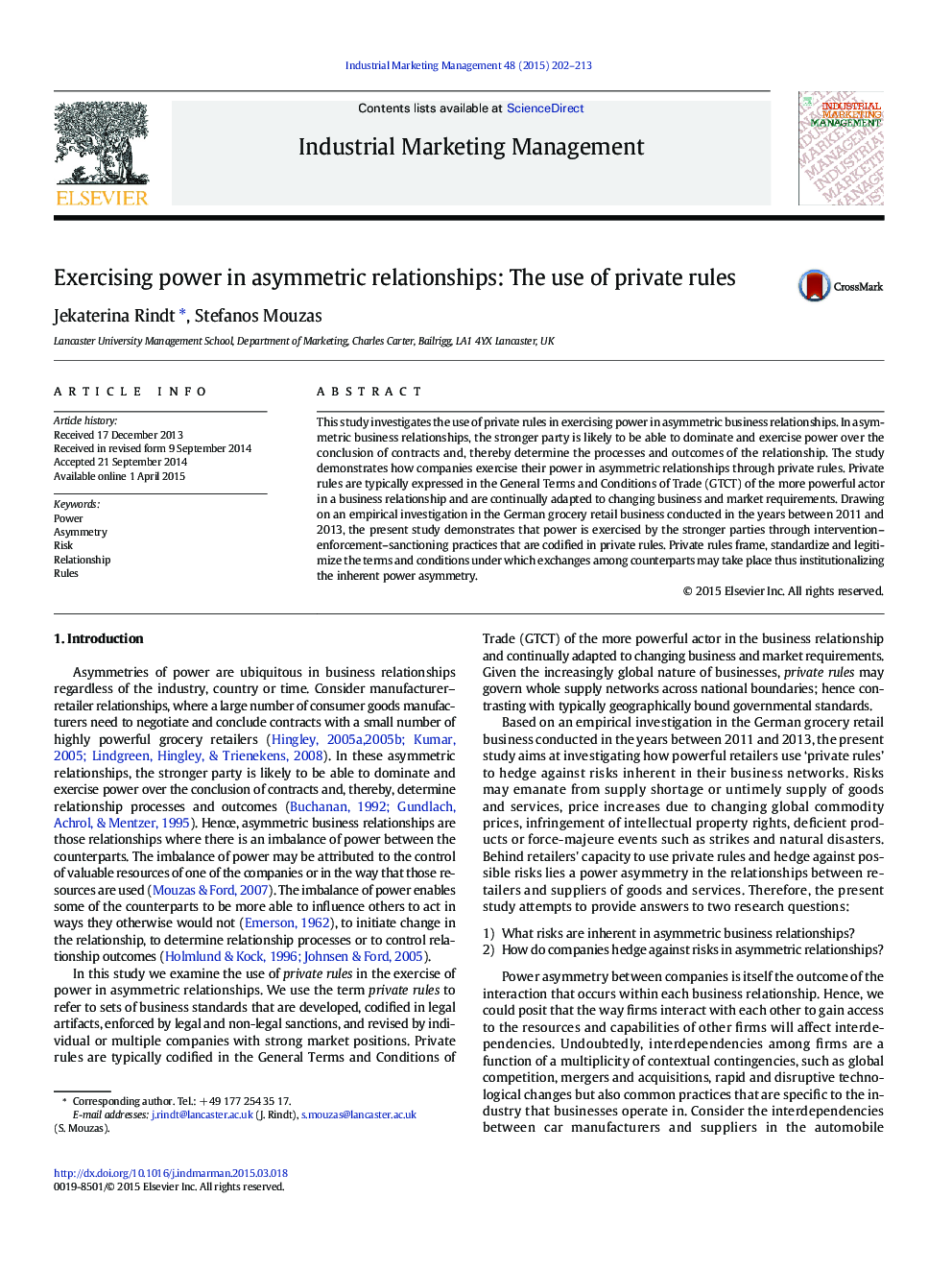| Article ID | Journal | Published Year | Pages | File Type |
|---|---|---|---|---|
| 1027540 | Industrial Marketing Management | 2015 | 12 Pages |
•We demonstrate how companies exercise power in asymmetric relationships through private rules.•Private rules are typically expressed in General Terms and Conditions agreed by counterparts.•By framing, standardizing and legitimizing exchanges between counterparts, private rules institutionalize power asymmetry.•Stronger actors exercise power through intervention–enforcement–sanctioning practices codified in private rules.
This study investigates the use of private rules in exercising power in asymmetric business relationships. In asymmetric business relationships, the stronger party is likely to be able to dominate and exercise power over the conclusion of contracts and, thereby determine the processes and outcomes of the relationship. The study demonstrates how companies exercise their power in asymmetric relationships through private rules. Private rules are typically expressed in the General Terms and Conditions of Trade (GTCT) of the more powerful actor in a business relationship and are continually adapted to changing business and market requirements. Drawing on an empirical investigation in the German grocery retail business conducted in the years between 2011 and 2013, the present study demonstrates that power is exercised by the stronger parties through intervention–enforcement–sanctioning practices that are codified in private rules. Private rules frame, standardize and legitimize the terms and conditions under which exchanges among counterparts may take place thus institutionalizing the inherent power asymmetry.
